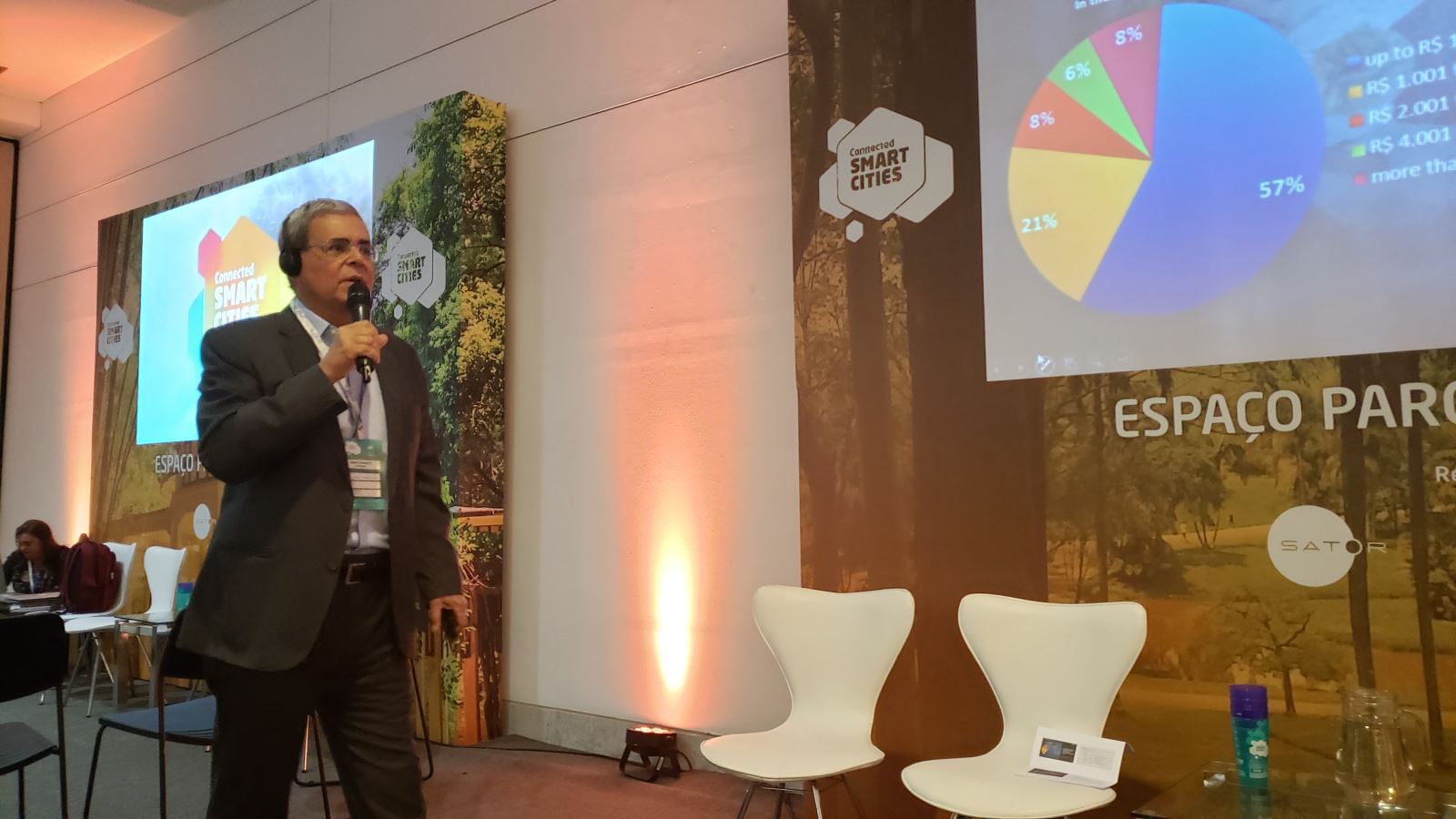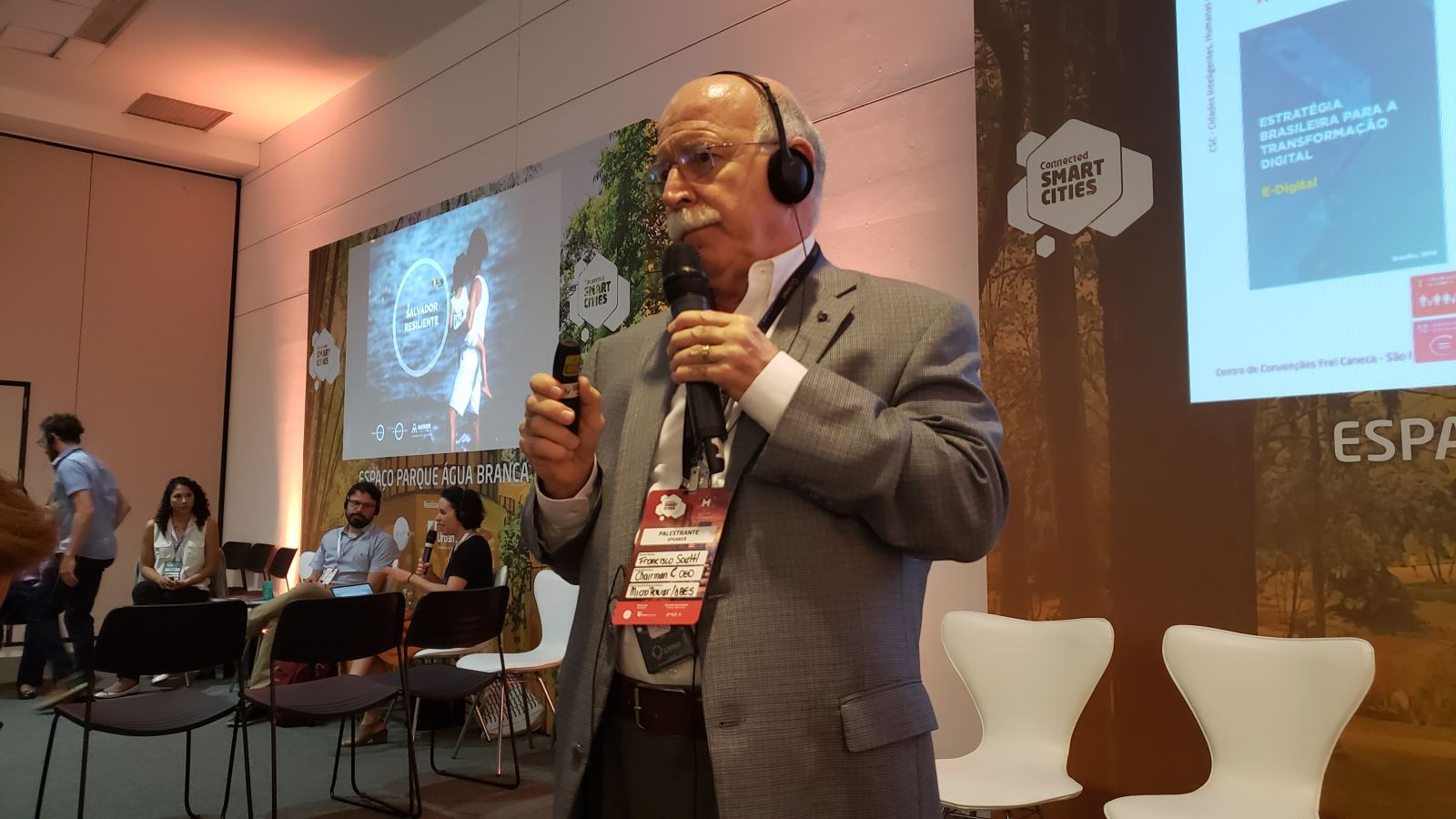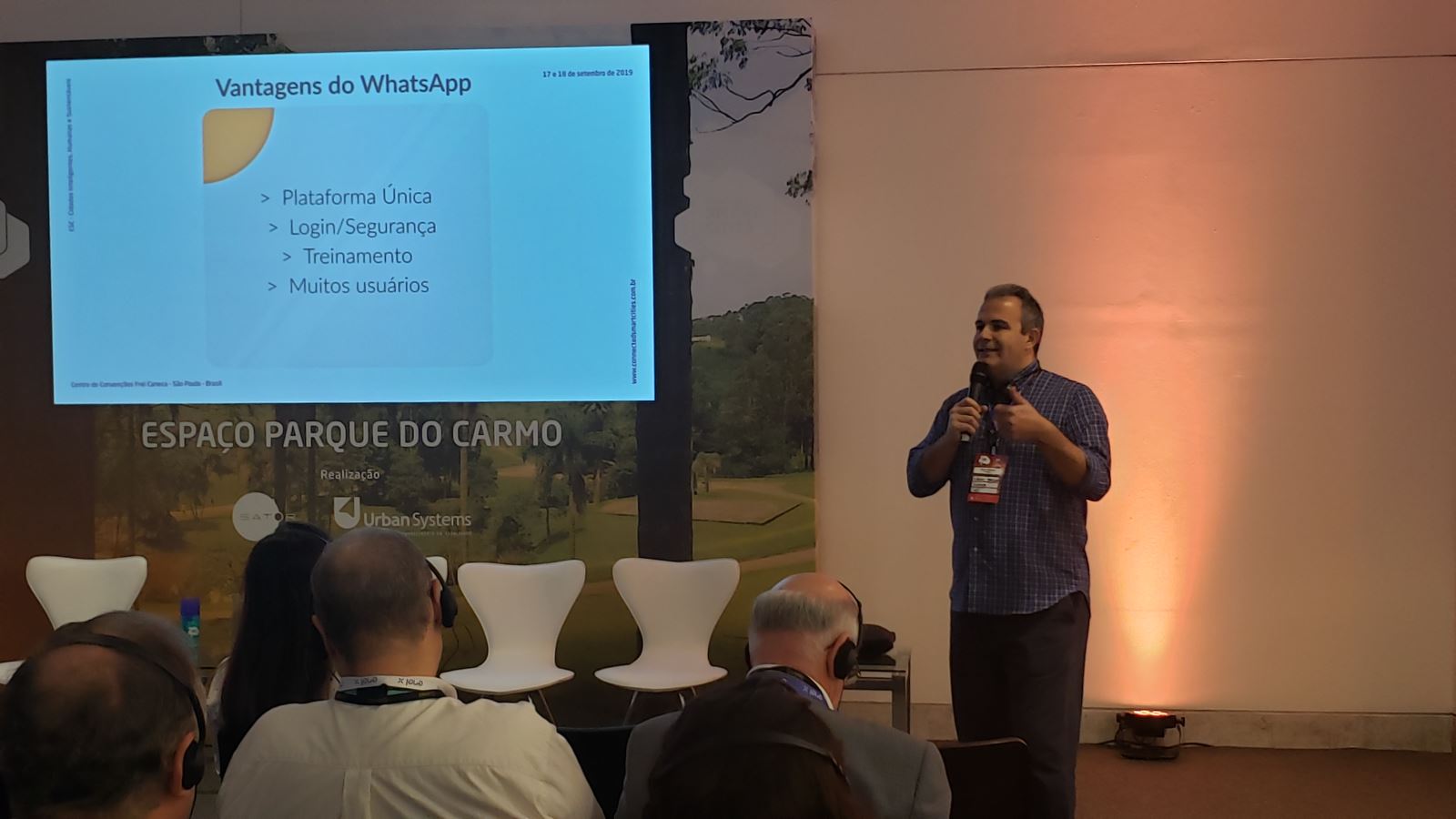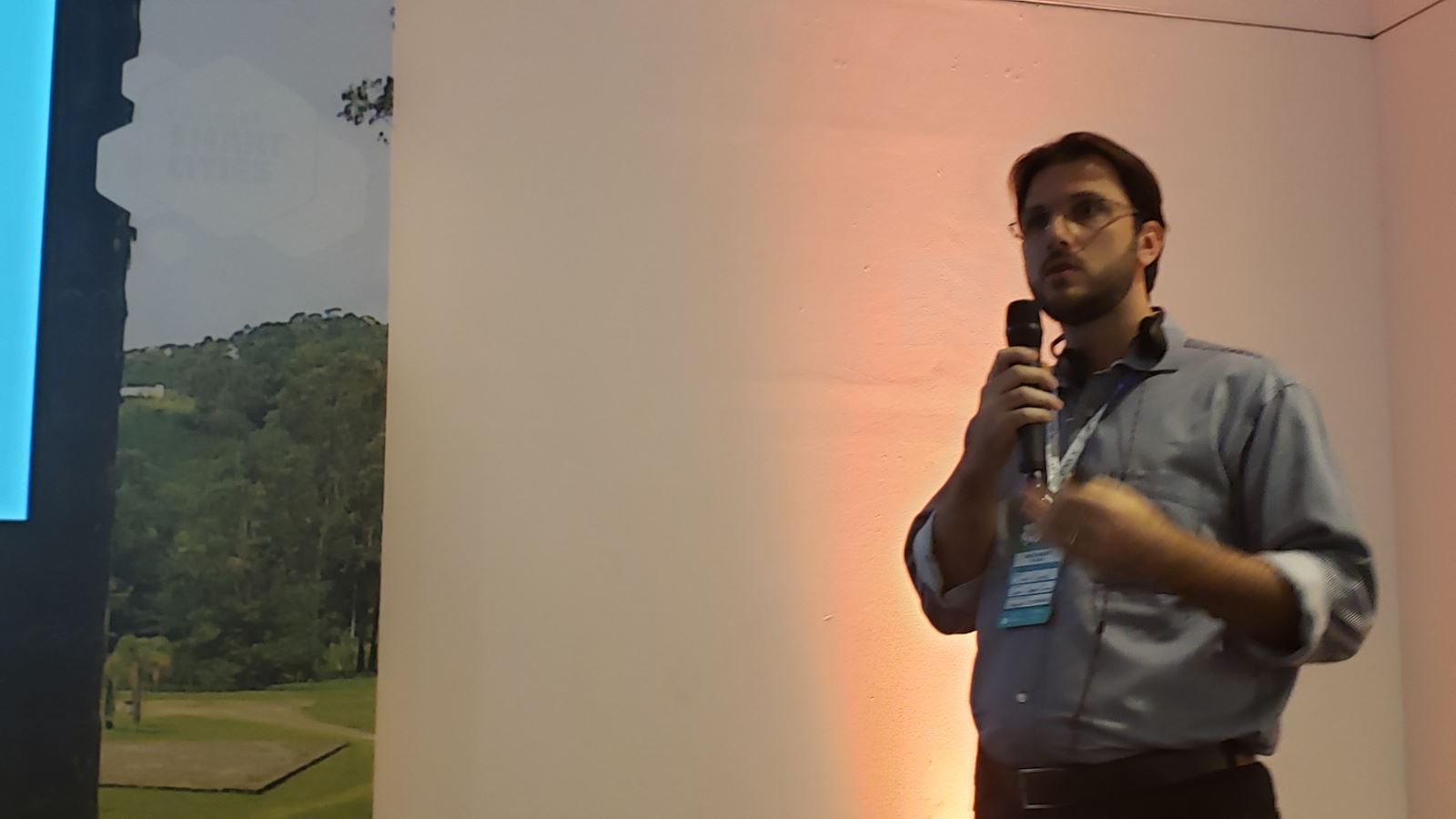Institutional supporter of the event, ABES contributed to these debates by holding the Connected Cities Workshop, on 09/18, which addressed important topics, such as the Brazilian strategy for digital transformation in cities; how to implement cyber-resilience; the relationship between ethics, data and artificial intelligence; the impact of the internet of things in cities; and platforms for urban care and stimulation of popular participation in public management.
Paulo Milliet Roque, vice president of ABES, opened the workshop and spoke about the various services that the entity offers to its members. “I highlight the committees that debate topics of interest, such as tax and legal issues of interest to the entrepreneur. For 33 years, our association has been working to strengthen the ICT sector in Brazil, reduce legal uncertainty for entrepreneurs who face different laws that impact their business”, he explained. The executive also presented industry data, which are gathered in the most recent edition of the Brazilian Software Market – Panorama and Trends study.

HR 5.0 and the Brazilian digital transformation strategy
ABES advisor and CEO of MicroPower Group, Francisco Antonio Soeltl, stressed that digital transformation has been taking place for a long time and the effects of this change are being observed in the new professions that are emerging and gaining projection in the job market today, such as Digital Anthropologists, Journey Manager, Digital Behavior Analyst, among others. “I have also been talking about the emergence of HR 5.0, which needs to be at the forefront of all these changes, as it is a professional who has new challenges, to act in the management of changes, in training and in the reduction of conflicts. Technology alone doesn't happen if it doesn't have people behind it. People are essential in all areas”. Soetl also spoke of the importance of managers knowing the Brazilian Strategy for Digital Transformation, which proposes actions in different axes, considering the emergence of the data-based economy, the increase in the number of connected devices, the development of new business models and the revitalization citizenship and government action.

social transition
Andriei Gutierrez, coordinator of the ABES Regulatory Committee, coordinator of the Movimento Brasil País Digital and Director of Government Relations at IBM, spoke about the transition from an industrial society to a digital society. “A transition does not occur in a vacuum and that creates conflicts. In this scenario, employment will be a major challenge, and institutions need to be re-signified, as the way they are developing young people is obsolete. There is a requirement for new skills, as there are vacancies in the market that are not being filled”. He was also emphatic in stating that companies and the government need to have retraining programs for everyone, which should contribute to reducing unemployment rates. "It's vital to look at each person's potential and guide them towards a new career."
Cities need resilient protection against attacks
In his presentation on cybersecurity, Roberto Gallo, CEO and Chief Scientist at Kryptus, addressed the current evolving risk landscape and the growing complexity of cyber threats that affect the functioning of different services in cities. He drew a parallel between the crises promoted by accidents, which the manager cannot foresee, the situations that the manager can foresee from the analysis of the data and the unpredictable attacks promoted by hackers or adversaries. For the executive, it is necessary to take advantage of emerging technologies aligned with policies, processes and advanced data analysis, to protect people, assets and employees, whether in the corporate or government scope. He brought as examples recent cases of ransomware-type hacker attacks, which occurred in several cities in Texas (USA), which can affect the provision of essential services to the population. “With an effective management of technological devices and systems, it is possible to monitor the city in real time, process the data, apply an emergency plan to meet that situation in order to offer greater mobility to citizens, modulating the city's connectivity”, completed.
The impact of the Internet of Things on cities
According to Werter Padilha, advisor to ABES and CEO of the companies Sawluz and Taggen, “all countries are on the same level in the race for the internet of things”. The businessman also spoke about the IoT.br National Plan, whose purpose is to give more space to IoT in Brazil, implementing and developing new technologies, while allowing free competition and free circulation of data, while giving due importance to the protection of personal data. For Padilha, the plan will help build connected urban centers. "Smart city is the way to improve life in society and there are already several projects being developed across the country. IoT technologies have been used or considered essential", he said. He cited as an example the Living Lab of Smart Cities, a ABDI project and Itaipu Technological Park, a space in Foz do Iguaçu (PR) where mayors and public managers can see different technologies in operation.
Technologies available for smart cities
The representative of W5 Solutions, Marcos Abellón, presented a conversational platform that seeks to connect citizens to public entities, based on successful messaging systems, such as Whatsapp. “The development of this product gives the taxpayer the ease of having the same service available on the public agency's web and in the palm of their hand. All responses are recorded with a simple click within the conversation platform”.

Diogo Cezari, from Magna Sistemas Consultoria, ended the cycle of lectures talking about an intelligent urban care platform, which aims to improve the city for its residents, using technology to improve the quality of life. “Through a single management platform, the city can have greater control of occurrences on public roads, streams, trees and gardening, among other areas. This platform allows to receive and respond to the citizen in a more assertive and faster way, since the entire process is registered in the platform's database”.

In any case, the effort made by entities and companies, such as those presented during the lectures, is useless if public policies do not go hand in hand with technology and innovation, since each project requires a medium and long-term vision. deadlines to become viable, transforming cities into more sustainable, more humane and socially developed places.












